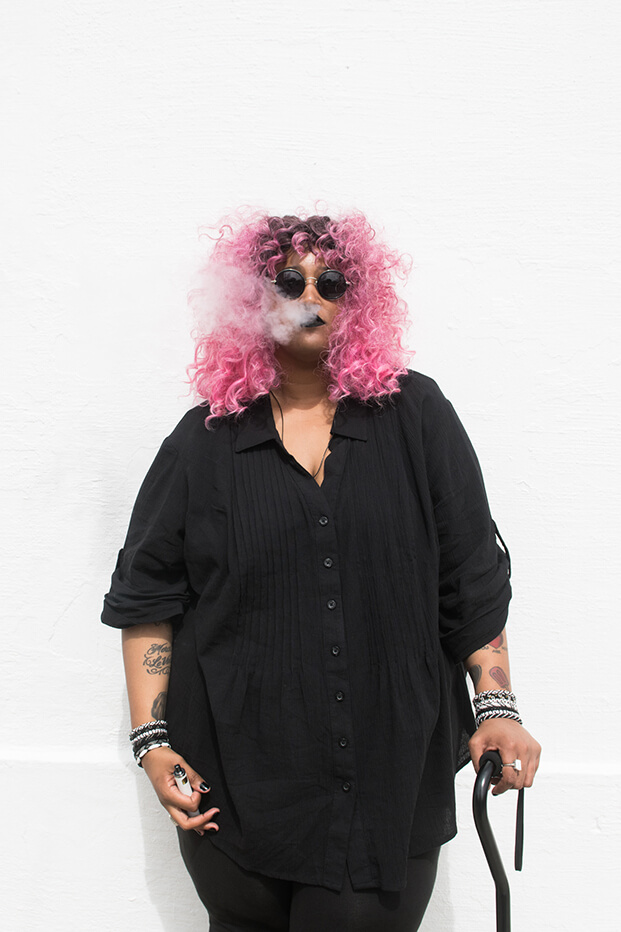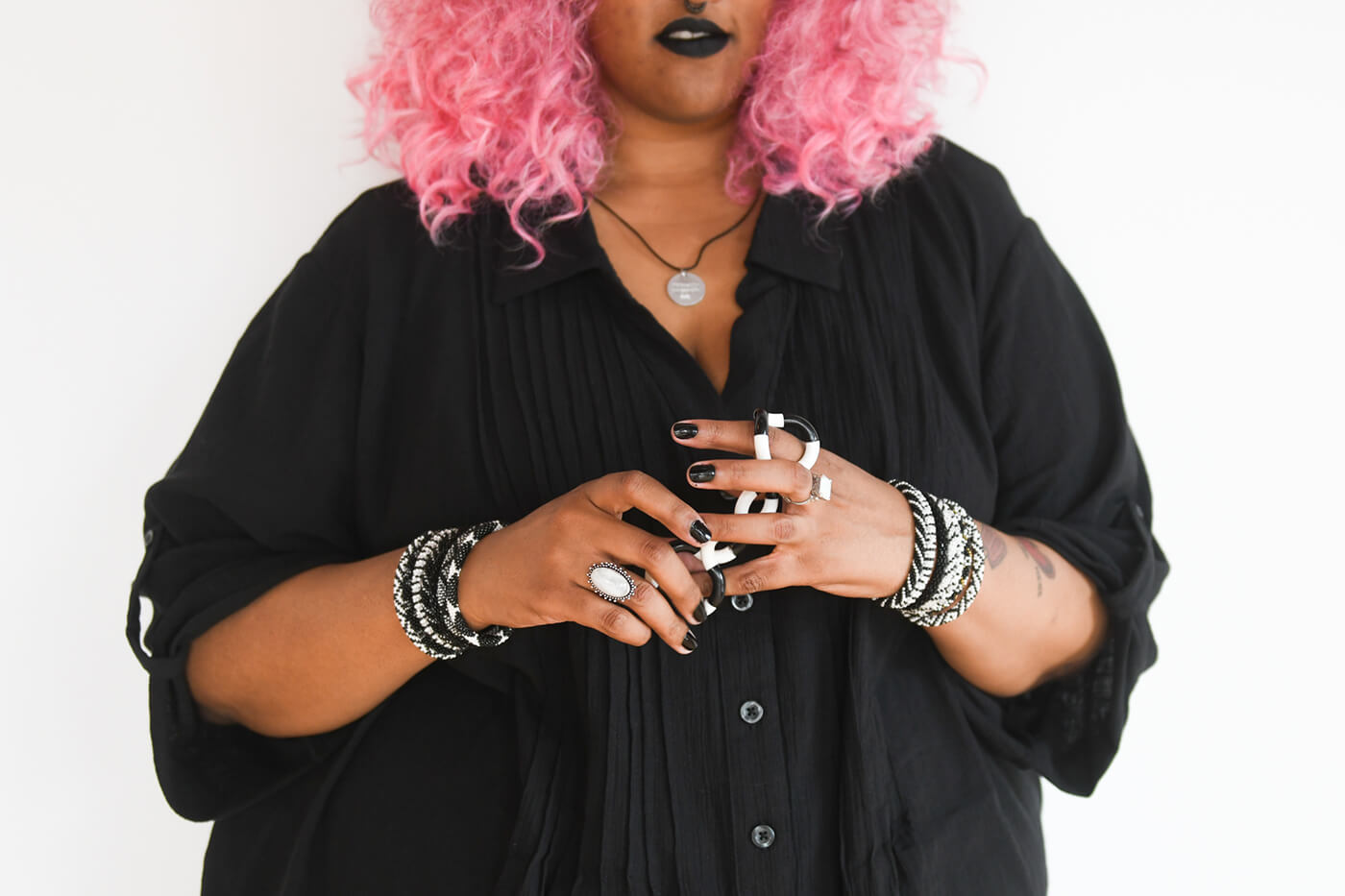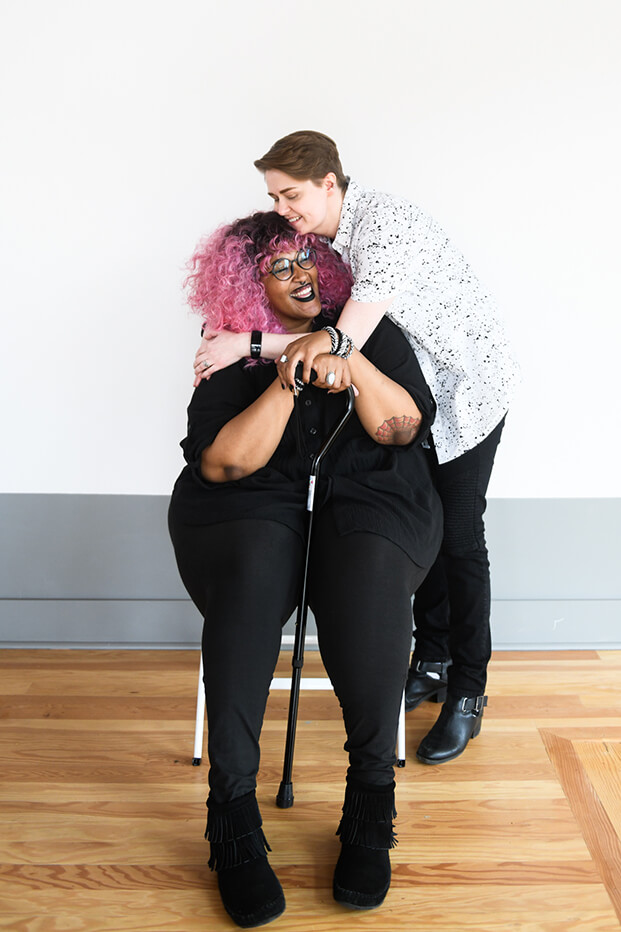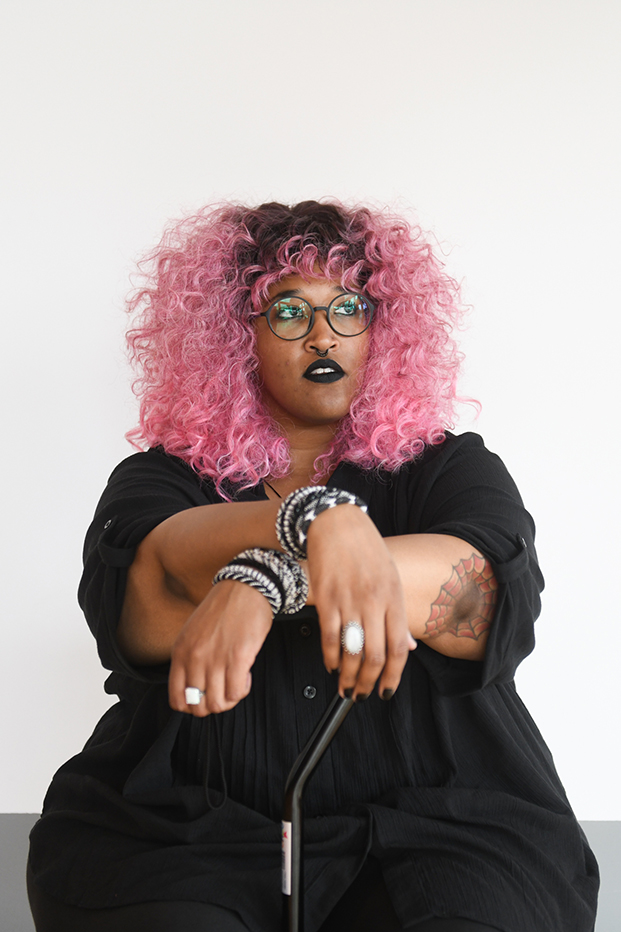June 18, 2019
Disabled And Here: Interview with Mallory Thomas
Hi Mallory! How would you like to introduce yourself? I’m an autistic activist, writer, and artist. I’m also chronically ill (I have Ehlers-Danlos Syndrome). I speak and write about what it’s like to be diagnosed as an adult, recovering from CPTSD, and disability rights. I was born and raised in Brooklyn, NY and recently moved to Oregon since it’s way more accessible for me and I have the freedom to be my best, disabled self. I’m also queer (panromantic and asexual).

In case people haven’t seen it, I’m going to take a quick moment to point folx toward your Affect 2018 talk on living in the intersection of Black womanhood and disability. And now: a very belated welcome to the Pacific Northwest! What makes Oregon more accessible for you than Brooklyn / New York? Thank you. The town I live in now is pretty easily walkable compared to NYC. I don’t have to worry about potentially falling down a steep flight of concrete stairs every time I leave the house or the lack of working escalators or elevators. The air quality is better here too. I was born and raised in Brooklyn and lived most of my life above a subway train yard. There was constant dust being kicked up from the trains and it wasn’t great for my allergies.
I feel safer as a disabled person here as well. I see more people on the street using their mobility aids than I ever did in NYC. It makes me feel like an engaged member of society that’s just going about their life. In NYC, I always felt like an inconvenience to people because I’m not a speed walker and it takes me a bit more time to get up the subway stairs. I had to brace myself for rude comments and people shoving past me. I’ve been able to let go of a lot of that stress here in Oregon.
Having an environment where you feel safe and supported is definitely so important! What are some misconceptions that people have about autism, chronic illness, or mental illness? One of the biggest misconceptions that I run across is people thinking that all autistic people are the same. I think those misconceptions are rooted in how little we’re allowed to participate in media about us. There’s a very narrow view perpetuated by films and television that most, if not all of us, are savants. That’s not true. Media also usually shows autistic people as young, cishet white boys or men that were diagnosed in childhood. Again, not true of everyone. I’m a queer, Black, Indigenous femme and I wasn’t diagnosed until a couple of years ago.

I think a lot of misconceptions about chronic and mental illnesses come from lack of appropriate media representation as well. Statistically, mentally ill people are more likely to be assaulted, but decades of movies have taught neurotypical people to believe that we are more likely to commit violent acts against them.
When it comes to chronic illnesses, movies tend to adhere to a handful of similar tropes. Unbreakable for example, uses Elijah Price’s chronic illness as the reason he becomes a villain. Chronic illnesses are also used in films as a way to raise the stakes in the story or to instruct the audience that they should be inspired by the "Strong but Sick" character’s ability to persevere through it all, find love and die gracefully. A Walk to Remember is a really good example of that, not only does the chronically ill character die, her death inspires her love interest to get his life together and push himself to do more.
What all these tropes have in common is a lack of seeing disabled and chronically ill people as folks with inner lives. Media tends to talk about our impact on other non-disabled, neurotypical, non-chronically ill people instead of focusing on who we are, how we live, and love. It’s the difference between being talked about and being talked to. Despite what abled people think, disabled people are active participants in this world and in our own lives when given the chance to be.

Have there been any disability-led hashtags / movements that have resonated with you over the past year? I’ve been actively participating in #DisabledPeopleAreHot and #DisabledandCute. I love scrolling those hashtags and reminding myself that disabled people come in every shape, size and shade. It’s been pretty instrumental in helping to boost my confidence and self image.
What are some of your favourite things to do for fun or relaxation? I love reading, so I spend a lot of time doing that. Coloring, drawing and making collages are some of my passions. Making art is really relaxing and therapeutic for me. I’ve also been able to sell some of my pieces which makes me feel really proud of my skills.
I’m obsessed with podcasts and radio journalism in general so I subscribe to a lot of shows, over a hundred at this point.

That all sounds lovely! Going forward, what are some ways that people can follow and/or support you?
They can find and follow me on Twitter, Instagram, and WordPress [editor's note: some links have been deactivated since the interview]. Support is always appreciated through donations and tips via Venmo.